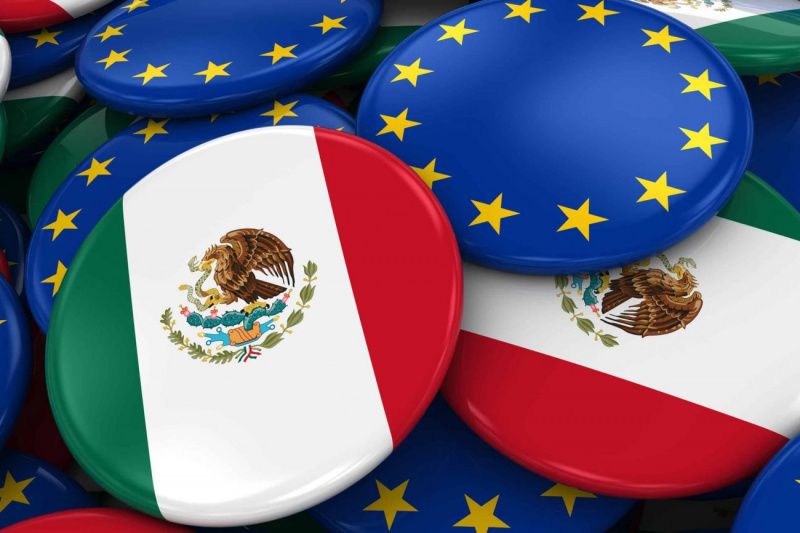EU and Mexico Finalize a "Modernized" Trade Agreement

The European Union and Mexico have reached a 'modernized' trade agreement that promises significant changes in the trade relations between the two entities. Under this agreement, Mexico will eliminate up to 100% tariffs on EU exports including cheese, poultry, chocolate, and wine. This updated agreement was reached following discussions between EU Trade Commissioner Maroš Šefčovič and Mexican Secretary of Economy Marcelo Ebrard.
The European Commission stated that this deal promotes strategic collaboration on key geopolitical issues such as reducing supply chain risks, ensuring sustainable supply of critical raw materials, and combating climate change. Mexico is currently the EU's third-largest trading partner, whereas the EU ranks as Mexico's second-largest trading partner in Latin America.
In addition to easing trade barriers, the agreement includes a chapter on trade and sustainable development, establishing legally binding commitments on labor rights, environmental protection, and climate change. Before its enactment, the agreement will go through a final legal review followed by ratification procedures.
Ursula von der Leyen, President of the European Commission, stated that the agreement will bring new trading opportunities, especially for EU's agricultural and food companies. This historic agreement serves as a testament to open and rules-based trade contributing to economic prosperity and security, as well as climate action and sustainable development.
The agreement extends the provisions of the EU-Mexico trade deal signed in 2000, after negotiations began in 2016. Trade relations between the EU and Mexico are currently robust, with trade in goods reaching €82 billion in 2023 and services at €22 billion in 2022.
Thijs Geijer, a senior economist for food and agriculture at ING, describes the agreement as a signal from the EU of its commitment to remaining open to trade. The enhanced market access obtained for a range of high-value products, including dairy and beverages, could provide EU exporters with competitive advantages, notably amidst potential U.S.-Mexico trade tensions.










